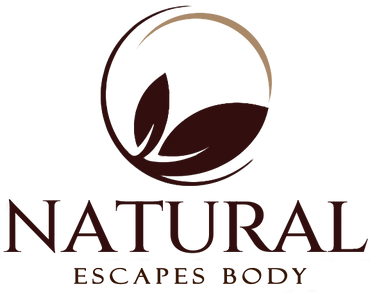Tea Tree Essential Oil Benefits for Skin & Hair
Quick Facts
Botanical Name: Melaleuca alternifolia
INCI Name: Melaleuca Alternifolia (Tea Tree) Leaf Oil
Extract Type: Steam-distilled essential oil
Benefits: Antimicrobial, antifungal, anti-inflammatory, acne treatment, wound healing, deodorizing
Best Uses: Acne care, athlete’s foot relief, dandruff control, wound cleansing, deodorizing body care
Tea tree essential oil is a powerful natural extract obtained from the leaves of the Australian Melaleuca alternifolia tree. Known for its fresh, medicinal scent and wide-ranging antimicrobial action, tea tree oil has been used for centuries to address skin infections, wounds, and other concerns. Today, it’s a hero ingredient in clean skincare, hair care, and body care for its proven ability to fight bacteria, fungi, and inflammation, making it especially valuable in products for acne, dandruff, and odor control.
What the Science Says
- Clinically proven to reduce acne lesions, with efficacy comparable to benzoyl peroxide but fewer side effects[1].
- Demonstrates broad-spectrum antimicrobial activity against bacteria, fungi, and even antibiotic-resistant strains[2].
- Effective antifungal action against athlete’s foot, nail fungus, and seborrheic dermatitis[4].
- Anti-inflammatory terpinen-4-ol reduces redness and swelling while supporting skin healing[2].
Key Nutrients / Compounds
- Terpinen-4-ol: Primary antimicrobial and anti-inflammatory compound.
- γ-Terpinene: Antioxidant and antimicrobial monoterpene.
- α-Terpinene: Antimicrobial but can be a sensitizer when oxidized.
- 1,8-Cineole: Supports antimicrobial action.
- α-Terpineol: Antimicrobial with a subtle floral aroma.
- p-Cymene: Enhances antimicrobial effects and aroma.
- α-Pinene: Fresh-scented antimicrobial compound.
Skin Benefits
- Reduces acne breakouts
- Soothes redness and inflammation
- Supports wound healing
- Fights odor-causing bacteria
- Helps treat athlete’s foot and other fungal infections
Hair & Scalp Benefits
- Controls dandruff and flaking
- Helps manage seborrheic dermatitis
- Freshens scalp and removes buildup
Why Natural Escapes Body Uses It
We choose pure, ISO 4730-compliant tea tree essential oil for its unmatched ability to keep skin, scalp, and body fresh and clear. It’s a star in our Peppermint Foot Cream, where its natural power helps keep feet comfortable and odor-free. In our experience, tea tree oil's natural antimicrobial power is ideal for targeted foot care, refreshing shampoos and conditioners, and cleansing body washes that support healthy skin and hair without harsh chemicals.
Products Featuring This Ingredient
- Peppermint, Tea Tree & Rosemary Shampoo
- Peppermint, Tea Tree & Rosemary Conditioner
- Peppermint, Tea Tree & Eucalyptus Body Wash
- Peppermint Plus Foot Repair Cream
Safety Notes
- Comedogenicity: Low (non-comedogenic)
- Always patch test before use as tea tree oil can cause allergic contact dermatitis, especially if oxidized.
- Do not ingest. Avoid use on broken or highly sensitive skin without guidance.
- Not recommended for children under 2 years or pets.
- Store in a cool, dark, airtight container to reduce oxidation and allergenic risk.
FAQs
Is tea tree oil good for athlete’s foot?
Yes. Tea tree oil’s antifungal properties have been shown to help treat athlete’s foot by reducing fungal growth and soothing itch and irritation[4].
Can I use tea tree oil shampoo every day?
Tea tree oil shampoos can generally be used daily, but if you have sensitive skin, start with 2–3 times a week and increase as tolerated.
Will tea tree body wash dry out my skin?
When formulated with hydrating ingredients, tea tree body wash can cleanse without overdrying, making it ideal for keeping skin fresh and clear.
How should I store tea tree oil products?
Keep them sealed tightly in a cool, dark place to prevent oxidation, which can increase the risk of skin irritation.
Can tea tree oil help with nail fungus?
Tea tree oil’s antifungal properties may improve the appearance of nails affected by fungus. Consistent, diluted application is important, and severe cases should be checked by a healthcare professional.
Is tea tree oil safe for color-treated hair?
When used in shampoos or conditioners at safe concentrations, tea tree oil is generally color-safe. However, frequent washing with strong cleansers can cause fading.
Can I use tea tree oil for body odor?
Yes. Tea tree oil helps neutralize odor-causing bacteria, making it a natural choice for deodorizing body washes.
Is tea tree oil good for scalp acne?
Tea tree oil can help reduce scalp acne by targeting bacteria and calming inflammation. Look for products formulated with safe dilutions.
Does tea tree oil tingle or burn?
A mild tingle can be normal, but burning or redness may indicate sensitivity or too strong a concentration. Always patch test first.
Can tea tree oil be used during pregnancy?
Topical use in properly diluted products is generally considered safe during pregnancy, but consult your healthcare provider before use.
Scientific References
- Treatment of acne with tea tree oil (melaleuca) products: A review of efficacy, tolerability and potential modes of action. International Journal of Antimicrobial Agents, 2015.
- Melaleuca alternifolia (Tea Tree) Oil: a Review of Antimicrobial and Other Medicinal Properties. Clinical Microbiology Reviews, 2006.
- Tea tree oil: contact allergy and chemical composition. Contact Dermatitis, 2016.
- A review of applications of tea tree oil in dermatology. International Journal of Dermatology, 2013.
- Tea Tree Oil: Properties and the Therapeutic Approach to Acne—A Review. Antioxidants, 2023
- DermNet NZ - Allergic Contact Dermatitis to Essential Oils

